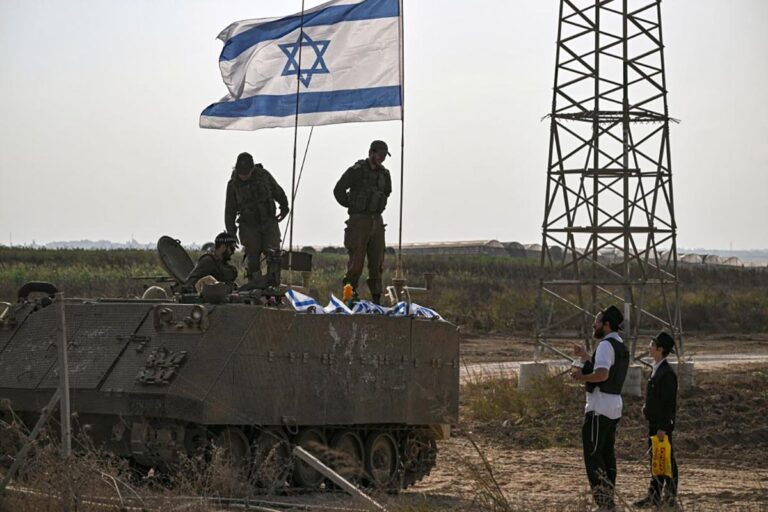
The year 2023 is nearing its end, and what a year it has been, marked by both significant challenges and resilience within the Jewish community.
We are still reeling after Hamas’s brutal attacks on Israel on October 7. The relief we feel over the release of 105 hostages is tempered by the fact that 129 people remain in captivity.
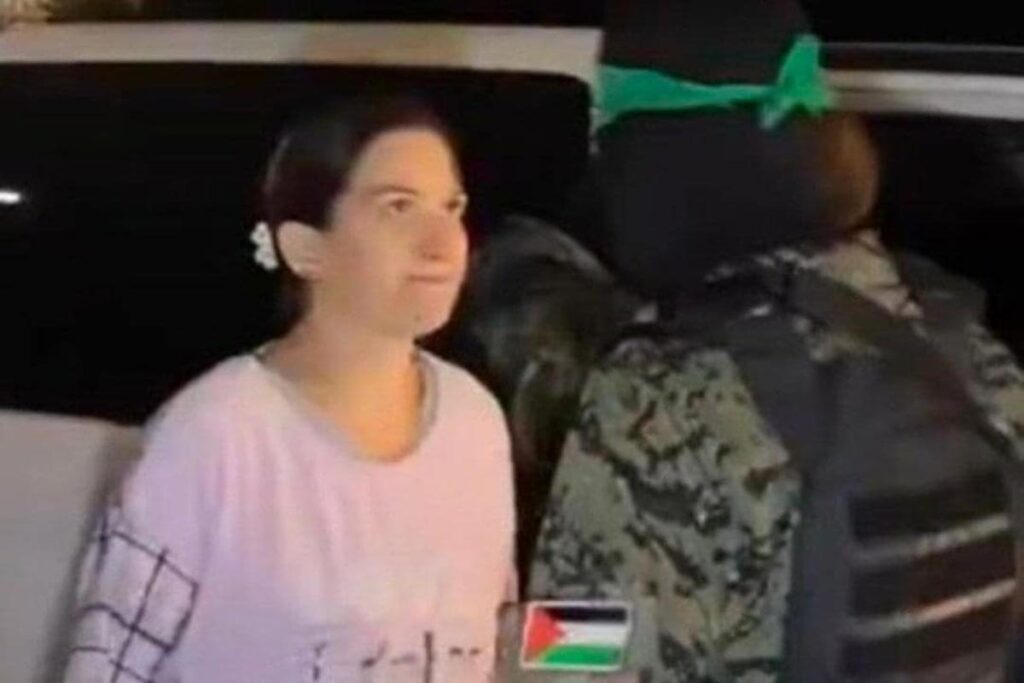
IDF soldiers are engaged in a violent war in Gaza, with some making the ultimate sacrifice. We mourn the loss of every soldier and innocent civilian.
On college campuses and in cities around the world, the Jewish community faces a surge in antisemitism and hostile, anti-Israel rhetoric. The leaders of three prominent universities failed to denounce blatant anti-Jewish hatred, making it clear why many Jewish students don’t feel safe on campus.
Social media platforms often amplify anti-Israel and antisemitic rhetoric, and many are feeling isolated and overwhelmed. Undoubtedly, 2023 was a watershed year for the Jewish community, a turning point where the difference is palpably felt.
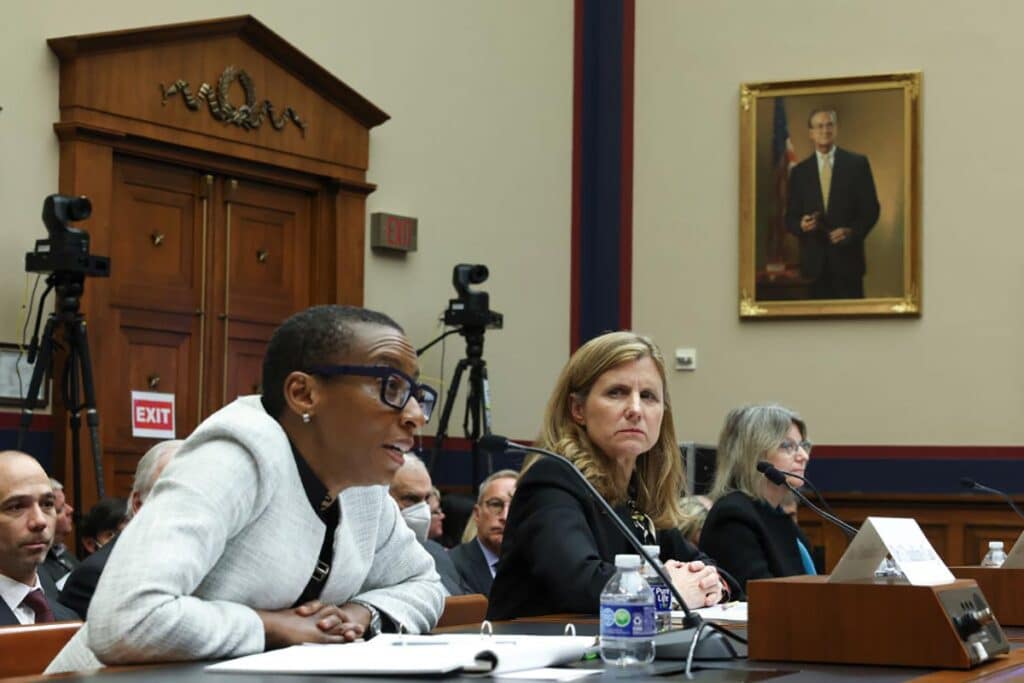
As we look back, this year leaves us with a complex blend of heartbreak, rage, grief and uncertainty about the future. Yet, amid these challenges, the Jewish community has grown more united and determined. Our community’s resilience is a ray of hope, illuminating paths through these dark times.
As we bid farewell to 2023, let’s explore the top 10 Jewish moments of this year. These moments not only defined the year but also offer a glimpse into the resilient spirit of our community.
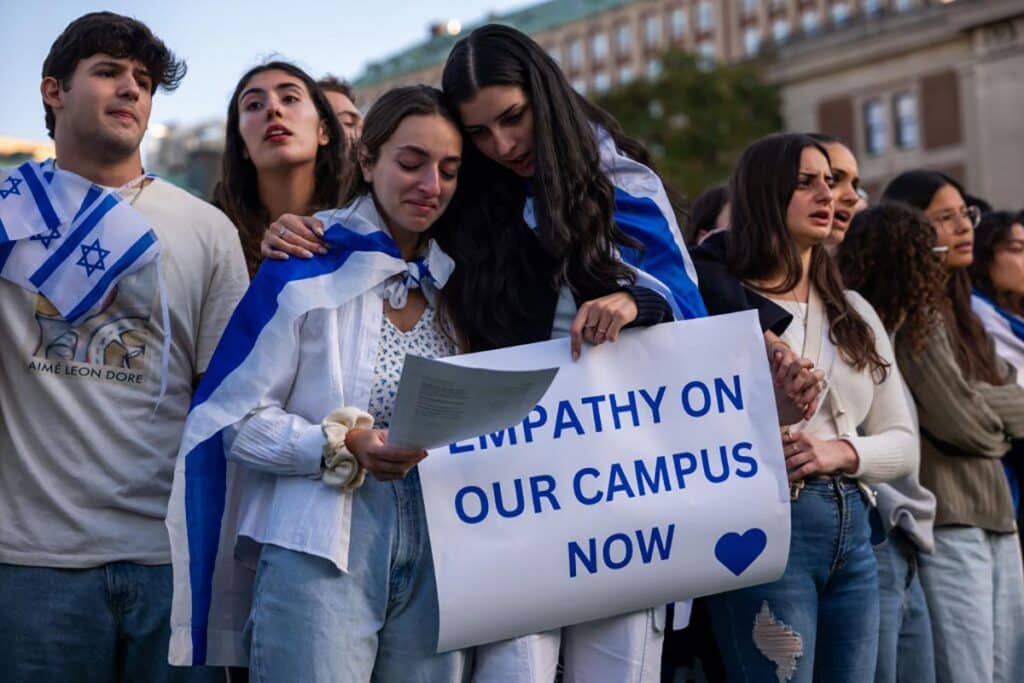
This is not meant to be an exhaustive list — if there is something important we overlooked, please reach out to us and let us know.
We’ve been there to cover each of these moments, and want to thank you, our readers, for being there with us each step of the way. We have so much planned for 2024, so keep visiting us.
If you have an idea for what we should cover or just want to say hello, email us at content@jewishunpacked.com. We would love to hear from you.
1. Judicial reform controversy (January – October)
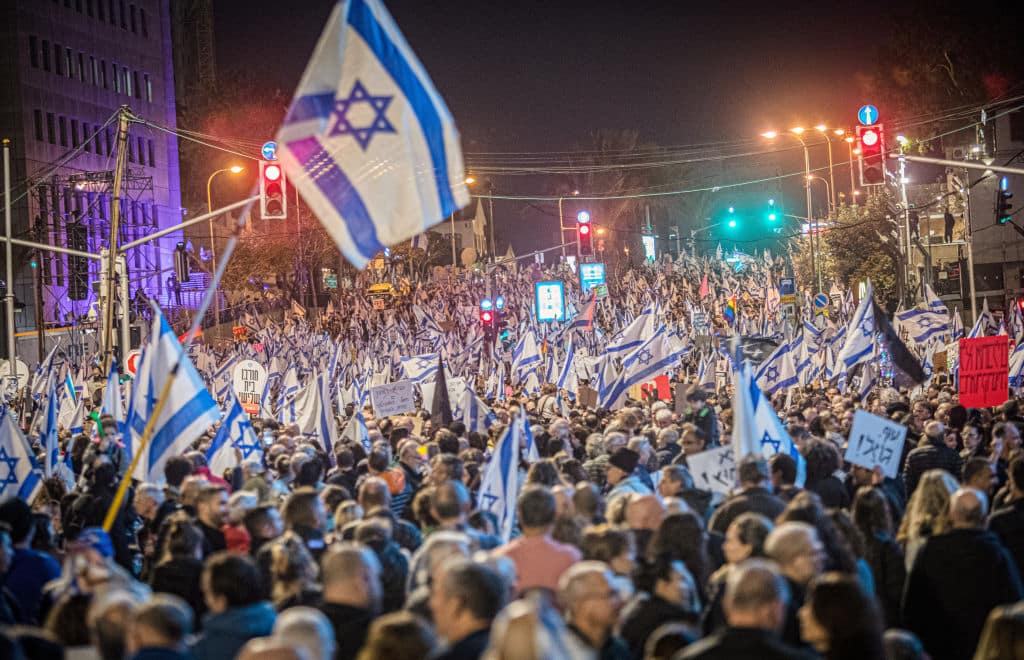
In early January, Israeli Justice Minister Yariv Levin announced a plan to overhaul Israel’s judicial system by significantly weakening Israel’s Supreme Court.
This prompted months of massive protests each weekend, as well as general labor strikes and threats from IDF reservists to stop showing up for duty, with many concerned that the country was on the brink of a civil war.
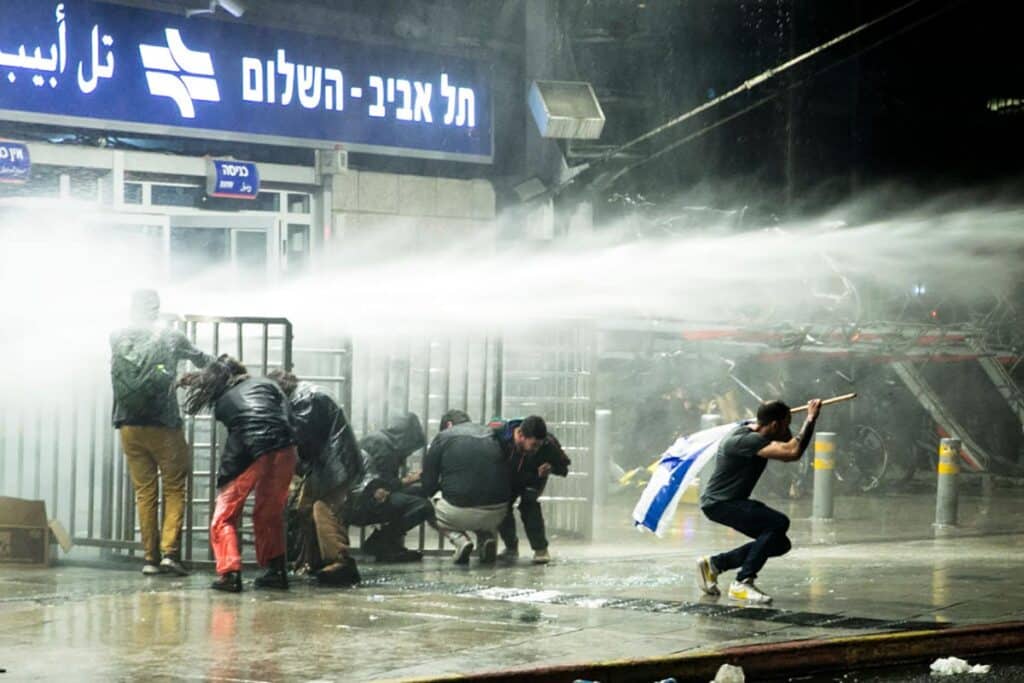
The Knesset passed the first part of the legislation — removing the court’s power to use what is known as the “reasonability” test — in July. Following the outbreak of the Israel-Hamas war in October, Prime Minister Benjamin Netanyahu said the overhaul was no longer on the table.
We answered your burning questions about the judicial reforms, including key arguments for and against the plan and what “democracy” really means. Plus, we unpacked the history of why Israel doesn’t have a constitution and explored a proposal that would have had the Jewish state split into two.
2. Earthquake in Turkey and Syria (February)
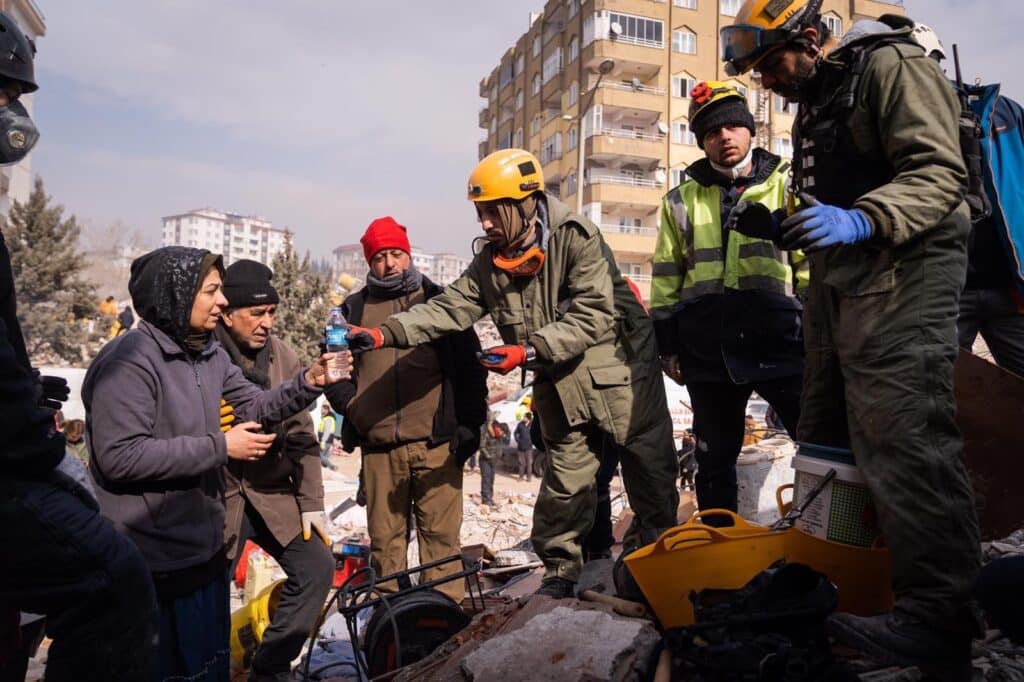
In February, after a devastating earthquake struck Turkey and Syria, Israel immediately sent aid to both countries.
The next day, Israeli search and rescue teams were on the ground in Turkey, searching for civilians and setting up a field hospital. In freezing cold temperatures, they rescued 19 people, saving their lives.
Given that Israel is technically at war with Syria and has a chilly relationship with Turkey, we explored why Israel would help these countries in their time of need.
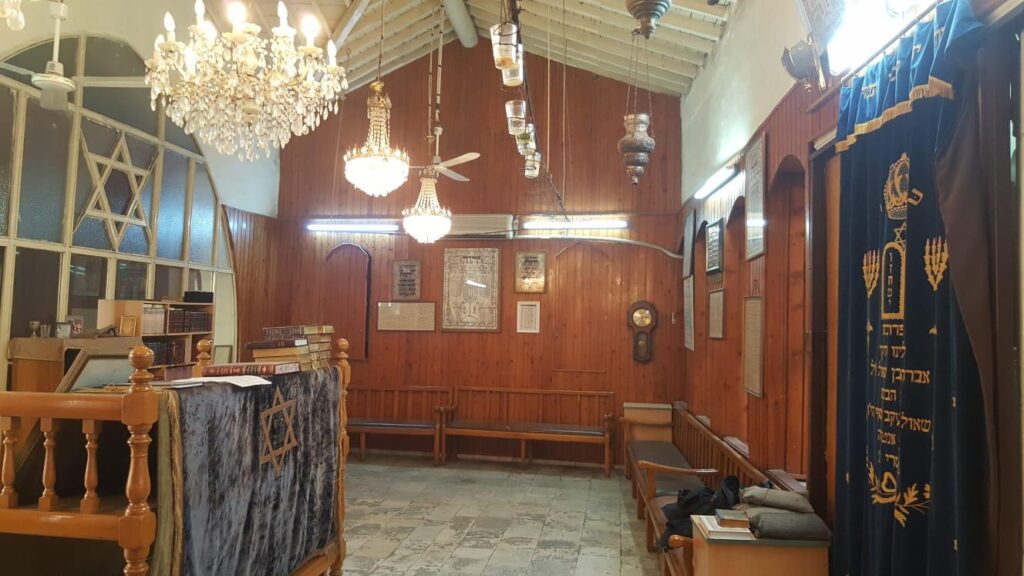
Plus, we published this moving tribute to Antakya, Turkey, the city whose small Jewish community was demolished along with everything else.
3. Tragic loss and strength: The Dee family (April)
In April, a devastating event shook the Jewish world. Leo and Lucy Dee, along with their five children, were on a family trip from Efrat to Tiberias.
While traveling through the Jordan Valley, Lucy and her daughters, Maia and Rina, were attacked by Palestinian terrorists. Both Maia and Rina lost their lives, and Lucy was critically injured, later passing away from her injuries.
In the wake of this heartrending loss, Rabbi Dee, facing unimaginable grief, delivered a powerful speech. He designated April 10th as Dees Day, calling for renewed moral clarity and differentiating between good and evil, right and wrong — virtues he believed were fading from humanity.
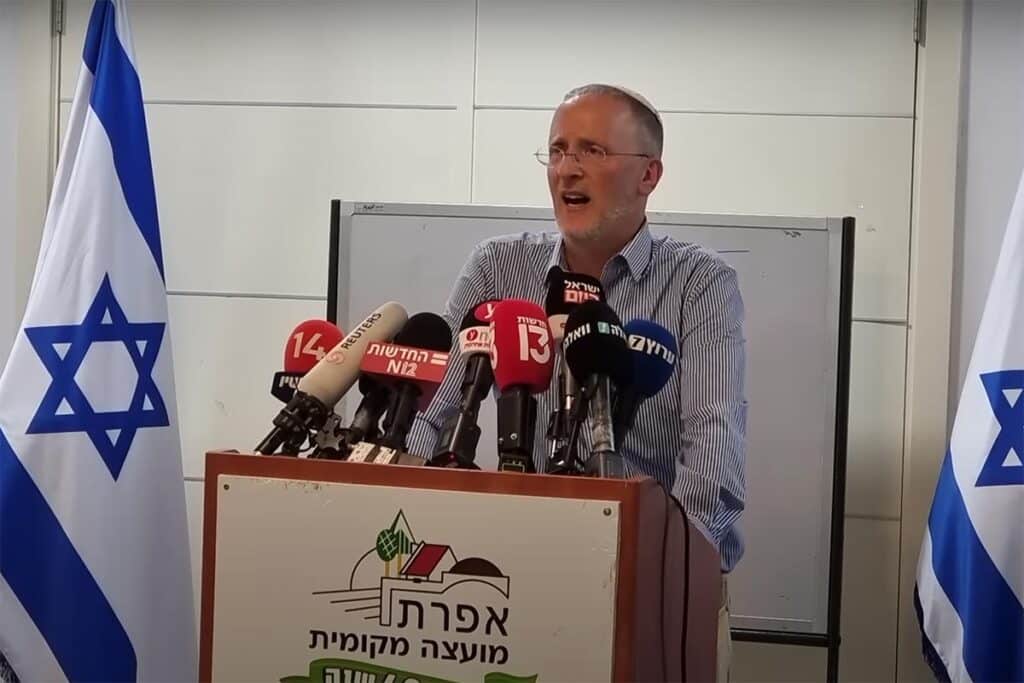
In the face of this unspeakable tragedy, Rabbi Dee and his surviving children showed extraordinary strength and courage. Their response provided deep insights into navigating grief and loss. Here are four key lessons we learned from the Dee family about dealing with tragedy.
4. Israel turns 75 (April)
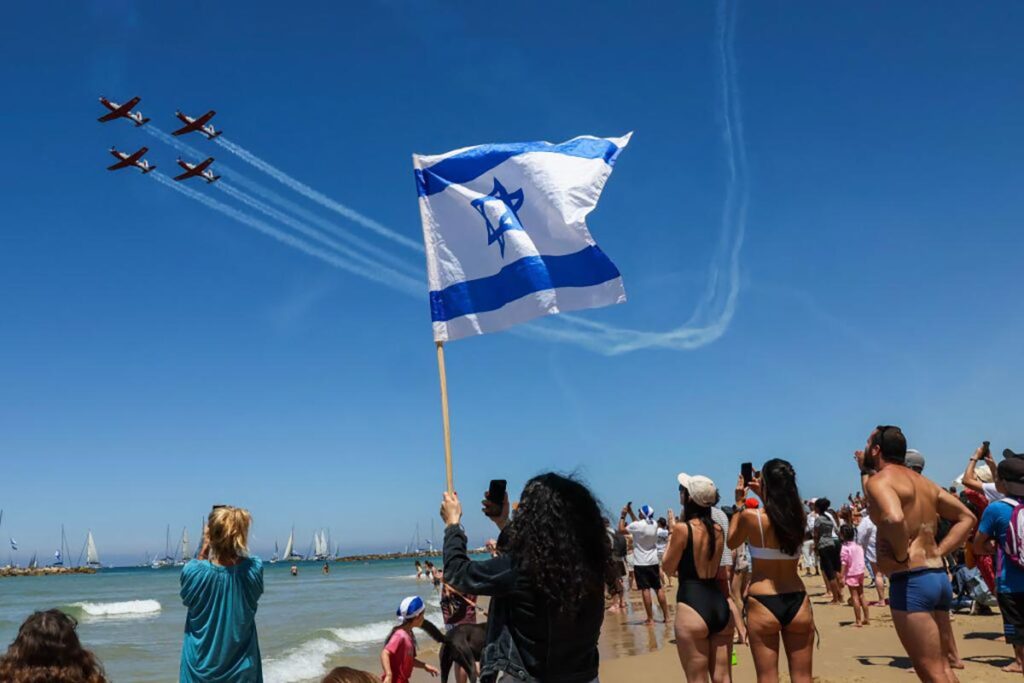
On April 25, Israelis celebrated Israel’s 75th birthday. We marked the occasion with articles, videos and podcasts highlighting the extraordinary journey of the Jewish state from 1948 to today.
They included this ultimate travel guide to Israel from the north to the south, 7.5 surprising facts about Israel’s independence, why Israel matters in 2023, and our three-part, “Unpacking Israeli History” podcast series on the establishment of the Jewish state.
Plus, on social media, during the 75 days leading up to Israel’s milestone birthday, we unpacked these 75 moments in Israel’s history.
5. The summer of Barbenheimer (July – August)
This summer, two films with significant Jewish connections captivated audiences, drawing crowds back to theaters after the pandemic.
In the lead-up to the Barbenheimer craze, we unpacked the surprising Jewish history of Barbie, revealing the story of the iconic doll’s Jewish creator, Ruth Handler.

We also explored the Jewish roots of J. Robert Oppenheimer, shedding light on his complex relationship with his faith and the multifaceted legacy he left behind.
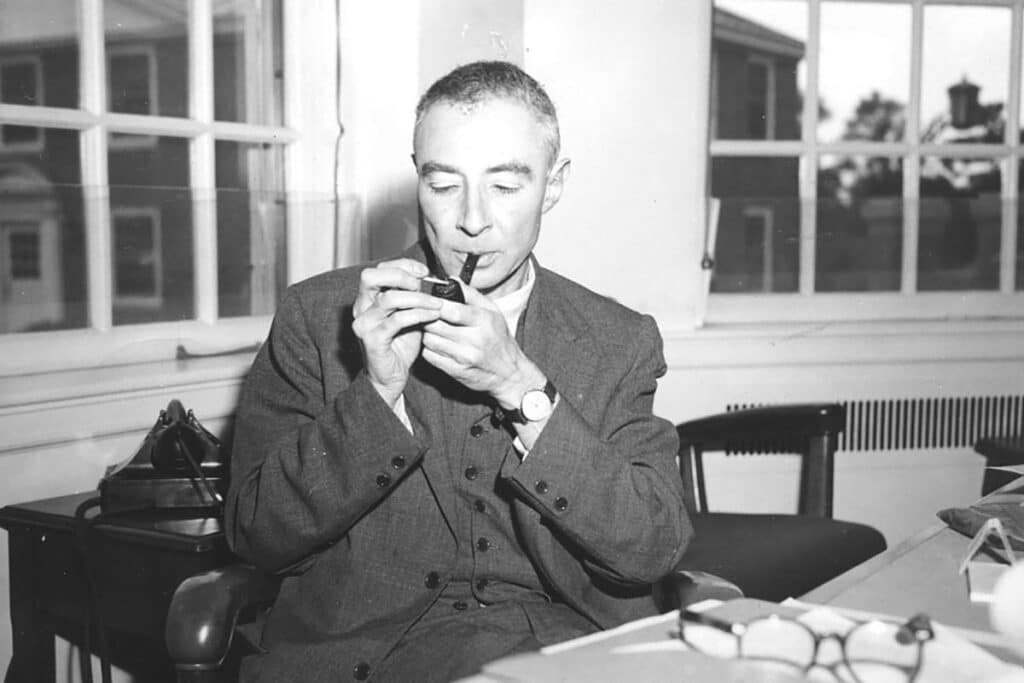
Shortly afterward, we also celebrated the second Jewish “double-feature” of the season: Adam Sandler’s “You Are So Not Invited to My Bat Mitzvah” and “Golda” starring Helen Mirren, delving into questions of Jewish representation with producers from both films.
6. Landmark court cases: Affirmative action and death penalty (June – August)
During the summer months, two consequential court cases captured the Jewish world’s attention, igniting discussions around affirmative action and the death penalty.
In June, the U.S. Supreme Court effectively ended affirmative action programs, declaring that race can no longer be an explicit factor in college admissions.
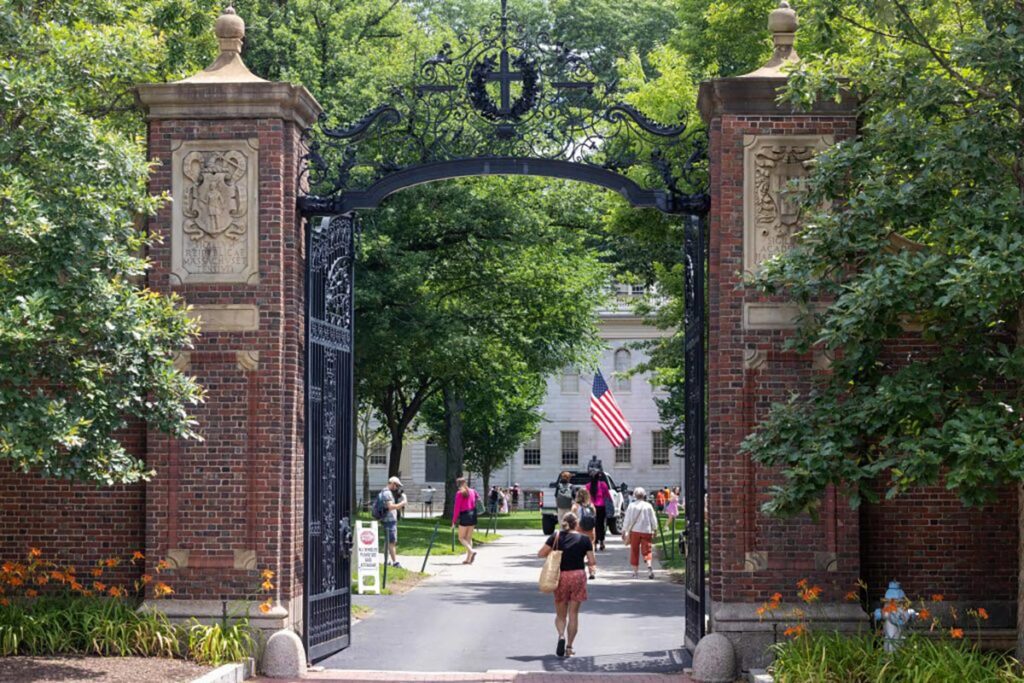
In the wake of this decision, we investigated the history of anti-Jewish quotas at several universities in the 1920s and considered the question: is affirmative action a Jewish value?
Another significant legal decision came in August. Five years after the horrific crime committed by Robert Bowers at the Tree of Life Synagogue — where he took the lives 11 people and injured six others in the deadliest attack on Jewish people in U.S. history — a federal jury unanimously sentenced him to death.
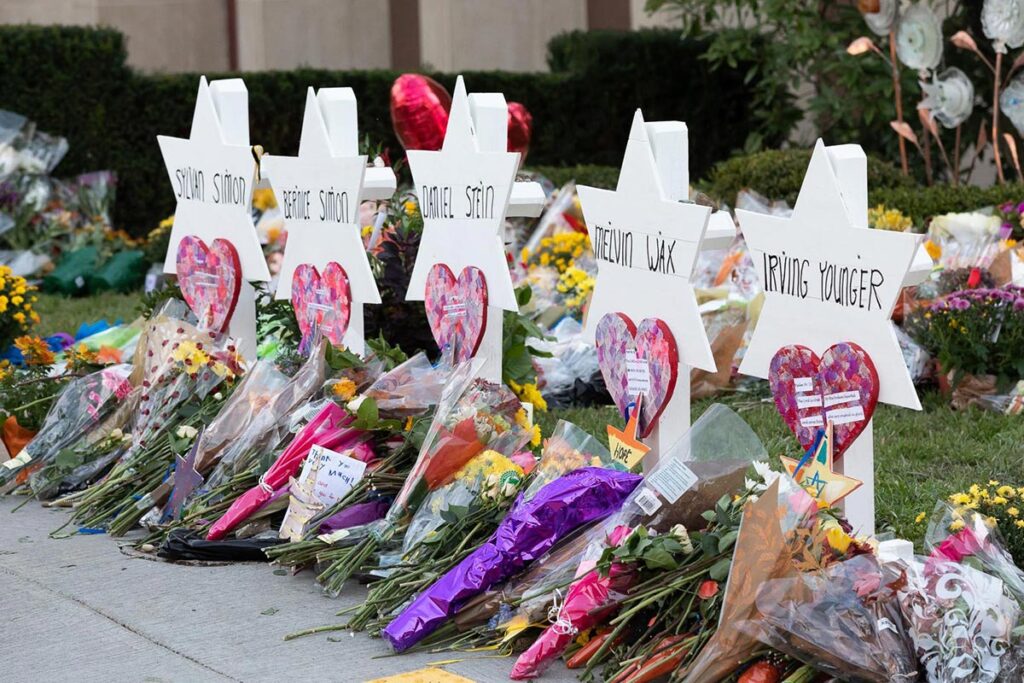
To make sense of the ruling, we explored Judaism’s complex stance on the death penalty, balancing the gravity of certain crimes with the core principle of the sanctity of human life.
7. Hamas’s attacks on Israel (October – December)
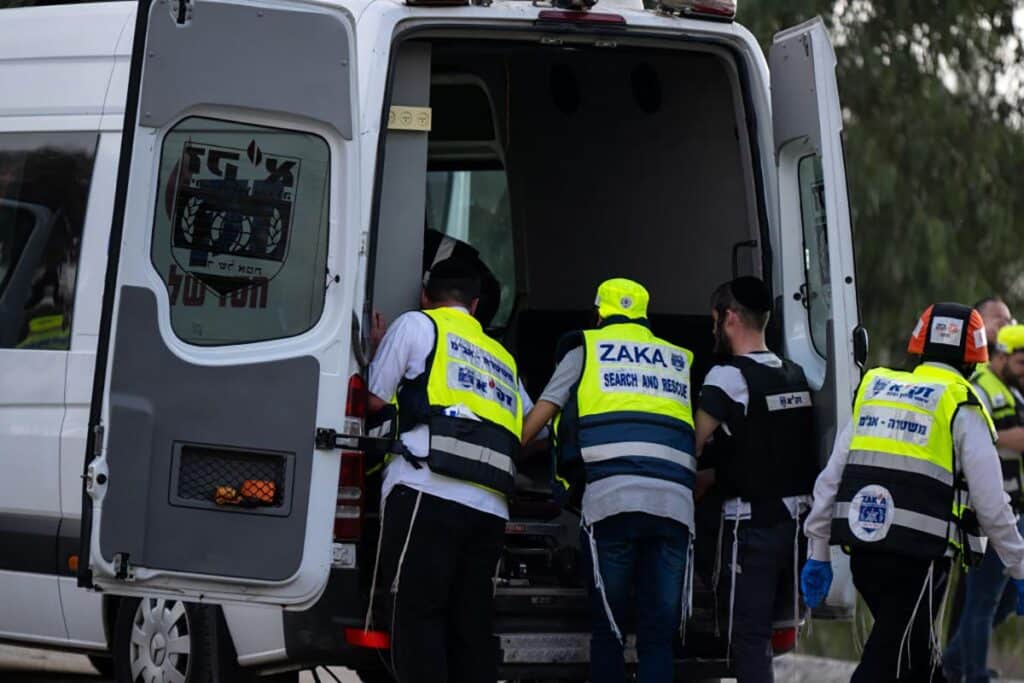
In its brutal attack on Israel, Hamas killed 1,200 people, injured 3,000 more, and kidnapped at least 240 people into Gaza, marking this as the deadliest day in Jewish history since the Holocaust.
Hamas committed unspeakable atrocities against civilians, killing babies, women, children and families, many in barbaric ways, and perpetrating acts of sexual violence against women.
Over 250 people were murdered at the Supernova music festival and hundreds more were slaughtered in their homes in the towns and villages in the Gaza envelope.
The IDF immediately responded by fighting the terrorists who had infiltrated and launching airstrikes in Gaza, preparing for a ground invasion and the current war against Hamas.
As of this writing, 153 Israeli soldiers have been killed since the start of the ground invasion in late October. The Hamas-run Gaza health ministry reports over 20,000 casualties in Gaza, a figure that is unverified.
Here is how you can support Israel during the war, prayers for Israel, and answers to FAQs about the war.
8. Escalating tensions on college campuses (October – December)
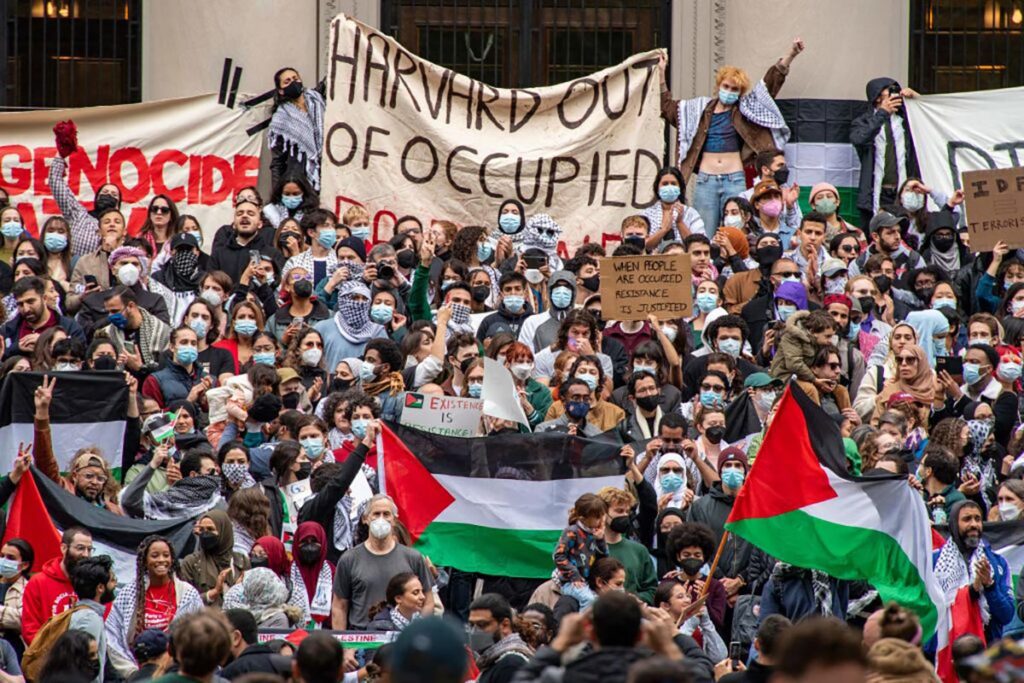
Soon after Hamas initiated a war with Israel, university campuses across the world became hotbeds of debate.
Pro-Israel, pro-Palestine and even pro-Hamas students have held demonstrations and spread petitions. Some of these messages are fiercely anti-Israel and antisemitic. At the same time, Jewish students face an increase in antisemitism both on campus and online.
To understand these challenges, Unpacked reached out to our college student readers to find out how they are grappling with the rising tensions at their schools. Here’s what they said.
If the environment on campus or online is impacting your mental health, check out these self-care tips for coping with the overwhelming news cycle, Jewish wisdom for navigating this time of war and special episodes of our Soulful Jewish Living podcast.
9. March for Israel: A historic Jewish rally (November)
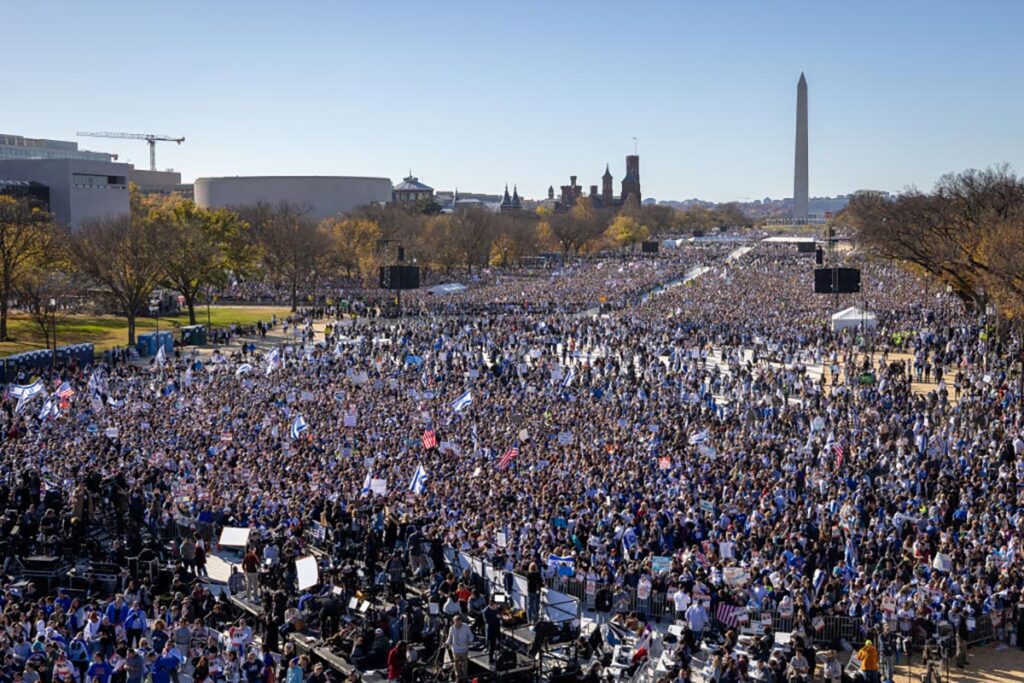
On November 14, approximately 300,000 people from all walks of life gathered at the National Mall in Washington, D.C., to demonstrate their support for Israel, demand the release of the hostages in Gaza, and denounce the rapid increase in antisemitism since October 7.
The march marked the largest Jewish gathering in American history, surpassing the size of similar rallies held in 2002 during the Second Intifada and in 1987 concerning the plight of Soviet refuseniks.
Many attendees viewed this march as an act of defiance of rising hatred both in the U.S. and around the world. Since the outbreak of the war, there has been an approximately 400% increase in antisemitic incidents in the U.S., according to the ADL. Read our recap of the rally here.
10. Hostage release and temporary ceasefire (November – December)
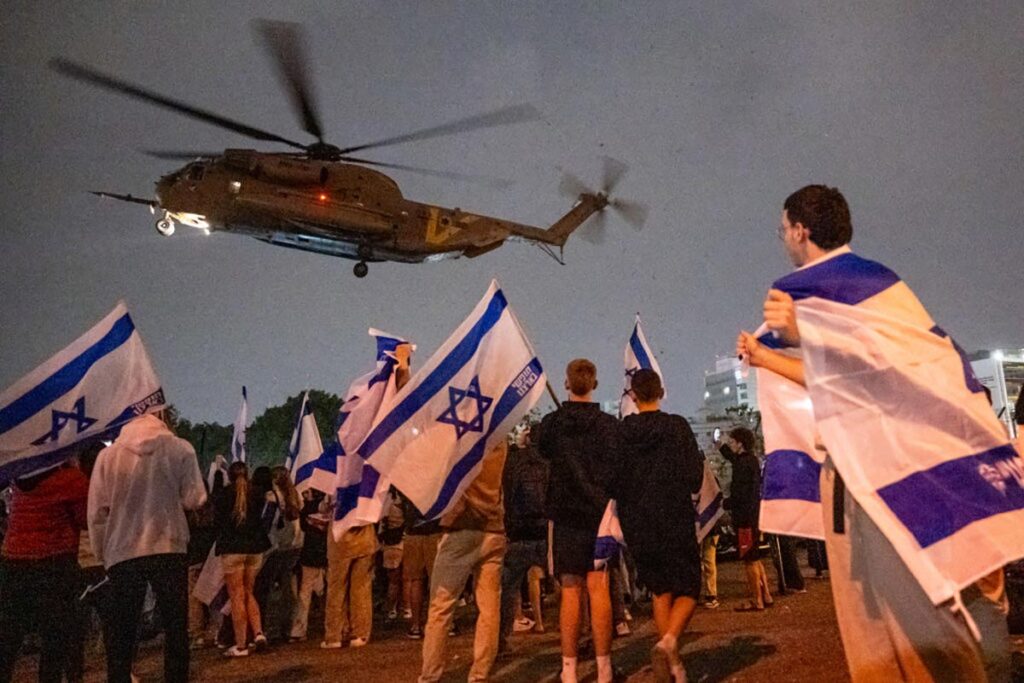
On November 22, Hamas and Israel reached a temporary ceasefire and hostage exchange agreement, which was mediated by Qatar, the U.S. and Egypt.
During the truce, which lasted for seven days, Hamas released 105 civilians — including 81 Israelis — in exchange for 210 Palestinian prisoners.
The hostages’ families shared emotional videos and photos of their long-awaited reunions, widely circulated on social media and broadcast around the world.
Since the onset of the war, continuous protests have taken place across the country, calling on the government to rescue the remaining 129 hostages. Broadway stars lent their voices to this campaign, recording “Bring Them Home” to draw attention to the hostages’ plight.
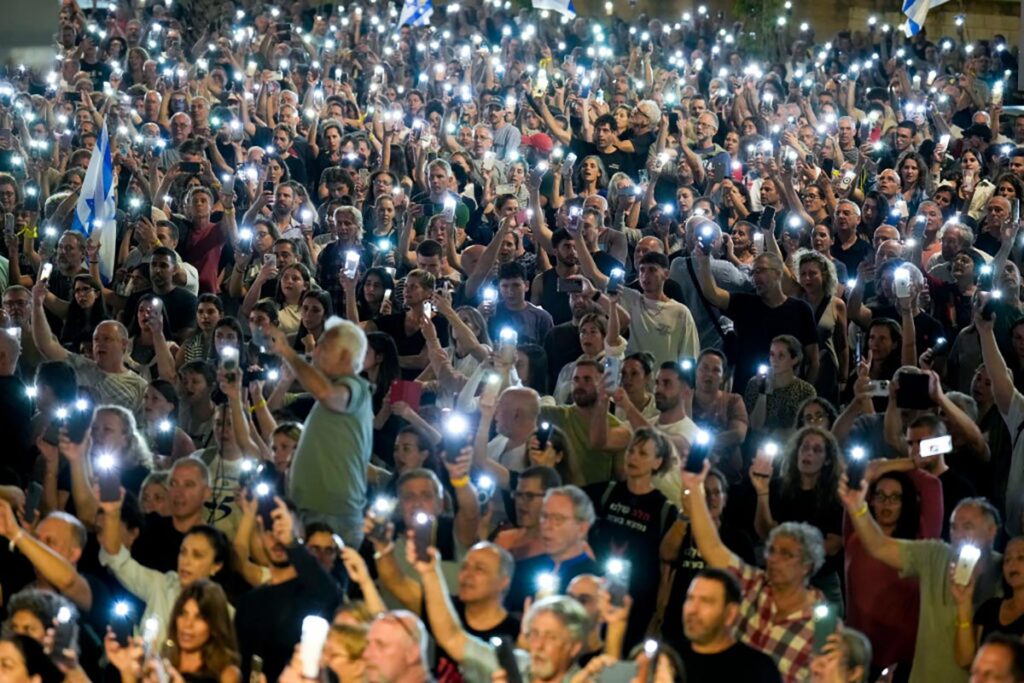
Prime Minister Netanyahu has met with hostages’ families multiple times, assuring them of Israel’s commitment to bringing their loved ones home.
Originally Published Dec 24, 2023 11:03PM EST
